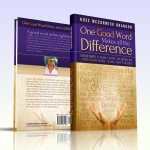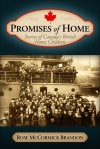Give yourself permission to believe in the validity of your own narrative. Bill ZinsserI'm a member of The Word Guild, an organization for writers who are Christian, and the group that sponsors this site. Each year hundreds of us enter work published during the previous twelve months, vying for awards in several categories, fiction and non-fiction. The first year I entered the competition my work was shortlisted but didn't place. The next year I placed first in personal experience and second in another category.
The year after that, I entered two of my published articles. I thought both were good, very good in fact. You can imagine my surprise when I didn't shortlist, never mind place. At first, I was miffed. Something must be wrong with the judges. Yes, for sure, it had to be them, it couldn't be me.
After the awards gala, I received, as is the organization's custom, copies of the pieces I entered with comments from the judges. Two articles. Different judges. Almost identical comments that went something like this: This writer knows how to tell a story. (Thumbs up.) Then each went on to say how disappointed they were when my personal essay descended into stories and quotes from other so-called experts. "I wanted to hear what you had to say," one commented.
One judge wrote that I'd begun well, hooked the reader, then lost the reader when I gave my voice to someone else who wasn't nearly as interesting. (He said that, I didn't).
I remembered my previous shortlisted and winning essays. I'd written from my heart, opened a window for the reader to see into my soul. Somewhere between year two and year three, I'd decided my views needed confirmation from others. I know how this happened. I wrote a few articles for a magazine that sculpted my outlines. They suggested who to interview. I followed their advice. I had to or my work wouldn't be published. Some subjects require confirmation from experts but I'd carried this practice into my personal experience essays - a mistake.
Each writer comes to the task of writing with her own life experiences. Those experiences shape us. I can quote other writers and I still do but I'm careful now not to give my voice to someone else. The writer's voice is his greatest asset.
You'll notice a quote from Zissner at the beginning of this post. The reason I quote him is, you guessed it, to confirm that the judges of my work were right - my story has value. For that reason I need to treasure it and express it in my words not in the words of a stranger.
You may not be a writer but you have a story to tell. Tell it from your heart as simply as you can. Tell how your story connects with God's story. His big story is what makes our small stories significant.
On a small scale, we have repeated a portion of early church history in our own personal stories. The life of the believer is the life of Christ in miniature. C. H. Spurgeon
Keep all God’s
salvation stories fresh and present. Micah 6:5 (The Message)
* * * *

 Rose McCormick Brandon is the author of One Good Word Makes all the Difference and Promises of Home - Stories of Canada's British Home Children. Visit her blogs: Listening to my Hair Grow and Promises of Home.
Rose McCormick Brandon is the author of One Good Word Makes all the Difference and Promises of Home - Stories of Canada's British Home Children. Visit her blogs: Listening to my Hair Grow and Promises of Home. 






PortrtMay14.jpg)



3 comments:
Thanks Rose. You express what most, if not all, of us experience and feel when adjudication of our writing disappoints and even mystifies us, especially when the judges' scoring and opinions vary widely on the same piece of work. Sometimes I've found the comments helpful, but other times I couldn't glean anything from them to help me improve and grow.
I reckon that your remaining true to your own thoughtful, warm voice is what makes your biographical writings a joy to read. ~~+~~
Hi Peter. It's always difficult to put our work into the hands of judges. Everyone has preferences and biases and it's not easy to know what to take to heart and what to throw away.
What a great, thoughtful post on writing from the heart, Rose. Well done and it's good that you revealed your 'bevy' of emotions following a writing let down. So true. I was nodding all the way. Great advice about telling it from the heart so it comes out in our own voice!
Post a Comment